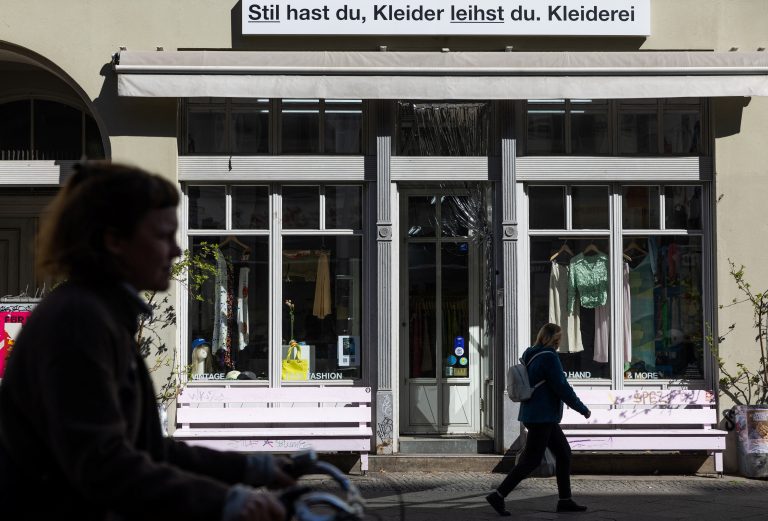🎧 Listen to This Article
Introduction to Germany’s Economic Challenges
Germany’s economy, traditionally driven by exports, is facing significant struggles as it aims to boost domestic consumption amid ongoing global uncertainty. For the third consecutive year, the country faces economic contraction, and the government under conservative chancellor-in-waiting Friedrich Merz is hoping that increased consumer spending can revive stalled growth. However, analysts and consumer behavior experts are questioning whether these efforts will be enough to shake Germans from their ingrained habit of saving, with a savings rate of 20% in 2024—well above the EU average of 15%.
Policy Proposals: A Boost to Domestic Demand?
In an attempt to stimulate the economy, Merz’s newly formed coalition with the center-left Social Democrats (SPD) has outlined a series of measures aimed at increasing disposable income and supporting domestic demand. These measures include tax cuts, raising the minimum wage to €15 per hour, and introducing tax-free overtime pay. Additionally, the government has announced a reduction in the VAT on food in restaurants from 19% to 7%.
While these policies may increase purchasing power, questions remain about their potential impact on German spending behavior. Carsten Brzeski, global head of macroeconomics at ING, expressed skepticism, suggesting that these efforts may not lead to a significant shift in consumption in the short term. Despite these fiscal measures, consumer confidence remains stagnant, and a cooling labor market is encouraging households to hold back from spending.
Germany’s Cultural and Economic Challenges: Saving vs. Spending
Germany’s culture of saving is a significant obstacle in efforts to increase consumption. For decades, Germans have been among the world’s biggest savers, and while this has kept personal debt levels low, it also means that many households are reluctant to spend, even in times of economic downturn. The savings rate reaching 20% in 2024 reflects this cautious mentality.
Moreover, the country’s long-standing dependence on exports has made it difficult for Germany to transition to a more consumption-driven economy. Despite government efforts, domestic consumption has been stagnant since 2023, and economists agree that boosting domestic demand is essential to avoid further economic contraction.
Sustainability Trends: A New Consumer Mindset
Adding complexity to the situation is the rising trend of sustainability among German consumers. Many Germans are increasingly concerned about the environmental impact of their consumption habits, with a growing interest in sustainable and ethical consumption practices. The Kleiderei fashion rental store in Berlin, for example, has become a symbol of this shift. Offering a “clothing library” model where customers can borrow pre-owned clothes, Kleiderei caters to a community focused on reducing waste and slowing down consumption.
This trend is being driven by younger generations, who are not only influenced by traditional marketing but also by social media influencers advocating for more sustainable lifestyles. In a 2023 study by the Development Engagement Lab, nearly 60% of Germans reported consuming sustainably, with 71% expressing a desire to do more. As a result, many consumers are opting for less frequent, more deliberate purchases, which may reduce their willingness to engage in the kind of spontaneous consumption that could help revive the economy.
Limited Short-Term Impact of Government Measures
Despite Merz’s proposals, the immediate impact of these policies is uncertain. Analysts point out that while tax cuts and higher wages may provide short-term relief, they are unlikely to lead to a drastic change in spending behavior. Salomon Fiedler, an economist at Berenberg, emphasized that changing consumer habits will take time and patience. Even the promise of tax cuts and fiscal “gifts” may not be enough to overcome the psychological barrier that keeps many Germans from spending.
The political uncertainties surrounding the coalition government also add another layer of unpredictability to these efforts. The government has yet to settle on the specifics of its fiscal agenda, and disagreements within the coalition have cast doubt on how effectively the measures will be implemented.
The Path Forward: A Long-Term Strategy
Economists like Brzeski argue that stimulating consumer spending in Germany will require more than just fiscal incentives—it will need a psychological “kickstarter” or a breakthrough in consumer sentiment. The government will need to create a sense of urgency or necessity for consumers to begin spending more, potentially through policy changes that directly address consumer confidence or economic stability.
Conclusion: Patience and Persistence Needed
Germany’s efforts to revive its economy by stimulating consumer spending face several challenges, from deep-rooted cultural tendencies towards saving to growing concerns about sustainability. While fiscal measures like tax cuts and minimum wage increases may provide some relief, they are unlikely to have a significant short-term effect on spending behavior. Moreover, the broader trend towards more responsible consumption could further dampen demand for goods and services.
The government’s efforts will likely require patience and persistence, with a focus on gradually shifting consumer attitudes and ensuring that policies are tailored to the evolving economic and environmental realities. As Brzeski noted, the challenge of getting Germans to spend again is not a quick fix but a long-term project that will require sustained effort and careful policy adjustments
For further details, clarification, contributions, or any concerns regarding this article, please contact us at editorial@tax.news. We value your feedback and are committed to providing accurate and timely information. Please note that our privacy policy will handle all inquiries



